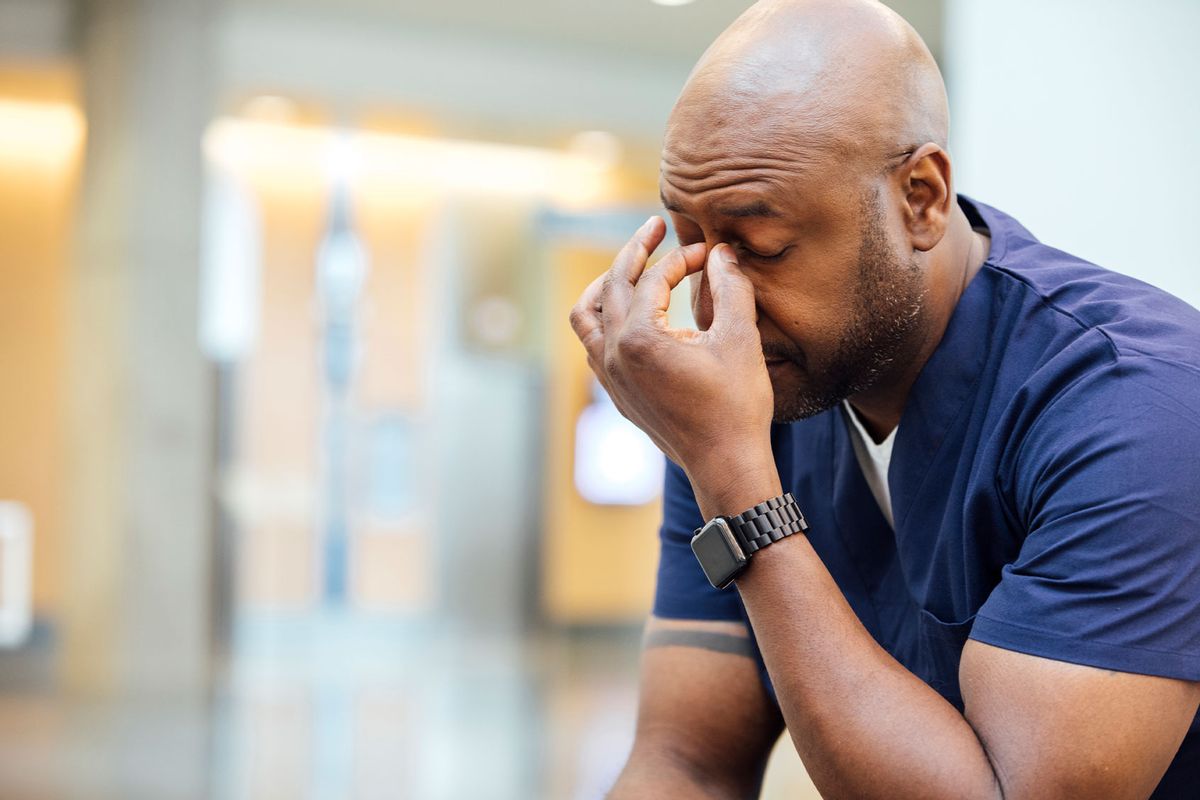Stress is more than an unpleasant emotion; it is a legitimate health concern, as attested by both scientists and physicians. U.S. Surgeon General Vivek Murthy recently declared loneliness to be a public health problem on par with smoking in part because of how loneliness causes stress.
The COVID-19 pandemic has increased individual stress levels, and doctors are recommending special diets (such as switching to plant-based meal plans) that are tailor-made for stress reduction. If nothing else, people want to avoid stress because they understand that it makes you miserable: You feel tired, you're always in an unhappy mood, and your body ages faster than if it was just able to relax.
"Biological age increased in situations of several physiological stress but was stored when the stressful situation resolved."
Indeed, that last symptom is particularly dreaded because — unlike the other symptoms of stress — it would seem to be permanent. Yet a recent study in the journal Cell Metabolism demonstrates for the first time that the rapid aging caused by stress can be reversed when the stress itself goes away. These findings have major implications both for the treating of stress and for the treating of aging.
Researchers from Brigham and Women's Hospital, a founding member of the Mass General Brigham, gathered data from existing studies about situations that are likely to lead to severe physiological stress. These included elderly patients undergoing emergency situations, pregnant people (as well as pregnant mice) during phases of the pregnancy and birth and patients who had been admitted to an intensive care unit for COVID-19. The scientists then analyzed levels of DNA methylation in cells to detect molecular changes indicating an increase in morbidity and mortality risks. That is all to say that, in layman's terms, they were seeking "biological clocks."
"In all of the analyses, the researchers saw indications that biological age increased in situations of several physiological stress but was stored when the stressful situation resolved," the researchers wrote. The major caveat to this is that the biomarkers could reflect factors other than biological age. Even so, "the work does point to a new understanding of the nature of biological aging, with implications for the study of anti-aging interventions," explained the study's authors.
"Those with better emotion regulation and higher levels of self-control were observed to have less age acceleration even at similar levels of stress."
"Our findings challenge the concept that biological age can only increase over a person's lifetime and suggest that it may be possible to identify interventions that could slow or even partially reverse biological age," senior author Vadim Gladyshev, of the Brigham's Division of Genetics, said in a statement. "When stress was relieved, biological age could be restored. This means that that finding ways to help the body recover from stress could increase longevity."
If there is any hope for people who fear they are aging rapidly due to stress and do not want to wait for new medications, it is that there is a more accessible alternative: Emotional regulation.
According to a 2021 study in the journal Translation Psychiatry that measured subjects based on their GrimAge (an epigenetic clock), "those with better emotion regulation and higher levels of self-control were observed to have less age acceleration even at similar levels of stress," with stress harming people's GrimAge as much as their BMI if they had poor emotional regulation.
In this context, emotional regulation is defined as people who have skills such as "emotional awareness, goals, clarity, strategies, acceptance, and impulse control in managing emotions." Although GrimAge could have increased in people with higher levels of stress because they were more likely to adopt unhealthy habits such as drinking, smoking, overeating and being sedentary, the tendency existed even when held for those lifestyle factors. By contrast, healthy distractions like exercising and creative hobbies can help alleviate stress and depression by providing outlets for negative energy that do not trigger negative, stress-inducing emotions.
None of this means that one should avoid all forms of stress. The difference between healthy stress and unhealthy stress is that the latter if prolonged shrinks the parts of the brain that control emotions and metabolism, causes memory problems and can lead to mental illness later in life. While positive stress can be rewarding and some negative stress is tolerable, "toxic stress" exists when a person experiences so many negative psychological and/or physical consequences from stress that it interferes with normal functioning.
- Karlston
-

 1
1



Recommended Comments
There are no comments to display.
Join the conversation
You can post now and register later. If you have an account, sign in now to post with your account.
Note: Your post will require moderator approval before it will be visible.